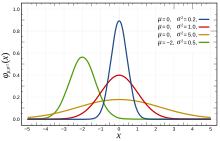Yoruba Wikimedians User Group/2022 evaluation report
|
Evaluation Report
This page is part of the Yoruba Wikimedians User Group 2022-2023 annual activities. Important background information can be found on the Summary page page.
This is the Yoruba Wikimedians User Group 2022-2023 annual activities evaluation page. The information on this page is based on the data collected from participating community members, programs leaders and partners. For the activities overview, please see the Yoruba Wikimedians User Group 2022-2023 annual activities. The core team was asked to report on activities they led and managed in the 2022–2023 fiscal year. Surveys were shared with participants who had participated in one or more of our activities, and data were collected for analysis. The activities were grouped into primary categories such as contests, GLAM, capacity building, edit-a-thons, and partnerships. Each program or activity is evaluated independently on its merits, available data, feedback from participants, and core team documentation. Learnings were documented for each program as they were being designed and implemented, and the following are some of our key learnings for the 2022–2023 fiscal year.
The 2022–2023 fiscal year received funding support from the Wikimedia Foundation and began on the 1st of July 2022 and ends on the 31st of June 2023. The year was supported by experienced members of the community, which forms the core team, and two paid staff, the programs coordinator and bookkeeper. At the time of this evaluation, a total of 30 projects or programs had been implemented and documented. The programs were hybrid (in-person and online), and the outcomes of each program were shared with community members through various platforms, including social media, newspapers, and the Wikimedia Blog (Wikimedia Diff). The programs implemented range from awareness creation to content creation, contests, capacity building, edit-a-thons, photo hunts, content donations, and partnerships. For the implementation of these programs and activities, the Yoruba Wikimedians User Group worked with a total of 12 partners, and these activities were reported in at least 7 national newspapers, including the Gurdian Newspaper, one blog, and the Wikimedia Diff. Our community's top priorities for the 2022–2023 fiscal year were to increase the quality of contents on Yoruba Wikipedia, promote Yoruba Wikipedia, increase contributions to Yoruba Wikipedia, and recruit new volunteers.
 Data used for this evaluation were collected from participants, core team members, program results, publicly available information, and through WMF Labs tools such as the hashtag tool, dashboards, Wikimedia Commons campaign, survey, and Excel sheets. We collected the following data: priority goals, donated resources, budgets, staff hours contributed, number of participants, number of new users, user retention, and number of media files used on Wikipedia articles. Values for a number of the key metrics were only reported for a minority of events, and in the cases of budgets and volunteer and staff hours these values could not be mined from other sources. Furthermore, data for the prograns implementation were not normally distributed; the distributions are, for the most part, skewed. This is partly due to small sample size and partly to natural variation, but does not allow for comparison of means or analyses that require normal distributions. Instead, we present the median and ranges of metrics and use the term average to refer to the median average, since the median is a more statistically robust average than the arithmetic mean.’’ To give a comprehensive picture of the distribution of data, we include the means and standard deviations as references.
 The Yoruba Wikimedians User Group had five priority goals in 2022-2023 fiscal year but the top priority goals were to increase the quality of contents on Yoruba Wikipedia, promote Yoruba Wikipedia, increase contributions to Yoruba Wikipedia, and recruit new volunteers. Other priority goals includes recruitment of new editors and mentorship of new editors. Participants' priority goals align with some of our community's top priorities. One or more of our activities supports participants' goals. At least 88% of the 63 members of our community who completed the survey reported that our programs and activities supported their goals. This is based on the data collected from participants using a survey.
 The Yoruba Wikimedians User Group activities were funded by funding support from the Wikimedia Foundation, did not receive donated resources, and are primarily volunteer-driven. A Twitter user, however, donated NGN 10,000 to support our community. That was the only non-WMF funding support I received. There is also in-kind support, such as a hall for events and training, provided by the University of Lagos and the International Centre for Yoruba Arts and Culture. The most commonly donated resources were food and snacks provided by partners during events such as the launching of the partnership with the International Centre for the Yoruba Arts and Culture (although we provided lunch as well) and the University of Ibadan. The lack of donated space reports is likely because many of our partners do not have a space for training and events and possibly believe that we should have an office space with a training hall for the events. Although the University of Lagos provided a space for the Yoruba Wikimedians User Group fan club to organize their weekly meetups, We only support the students with food and internet. |